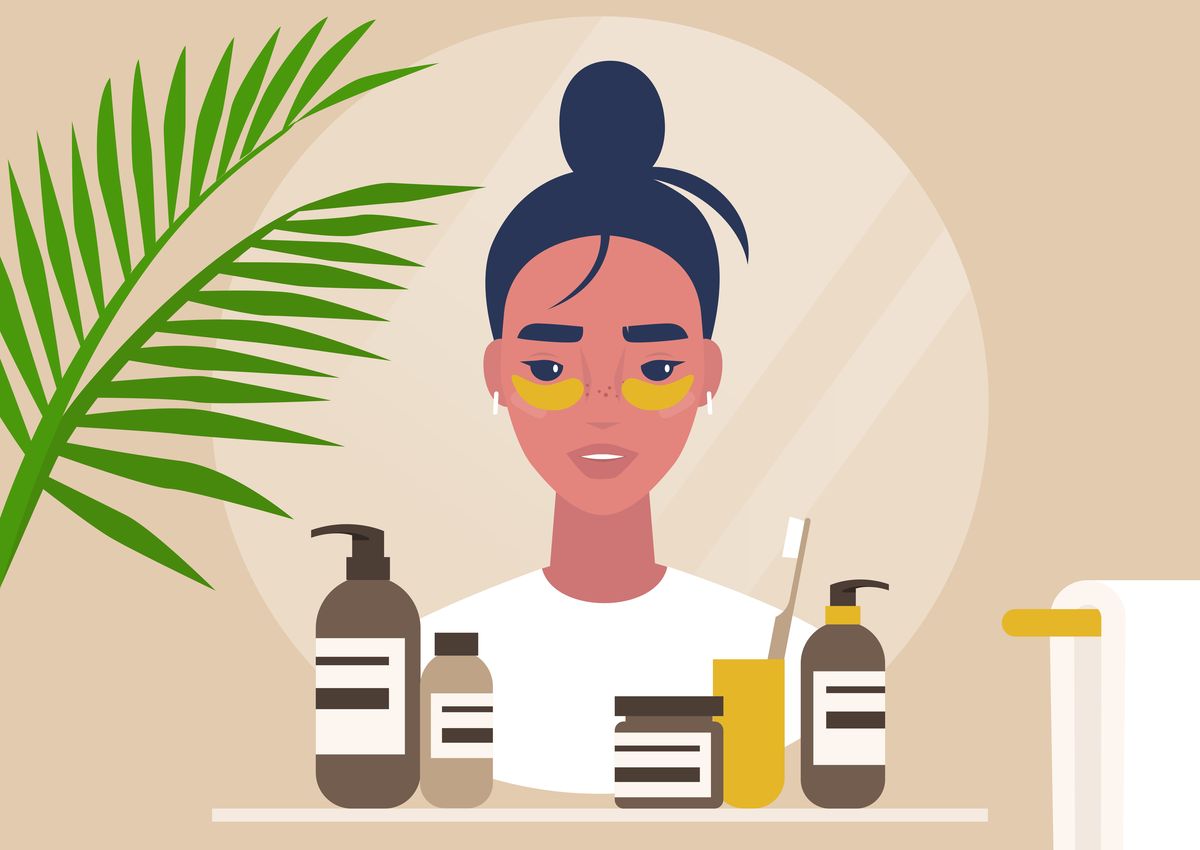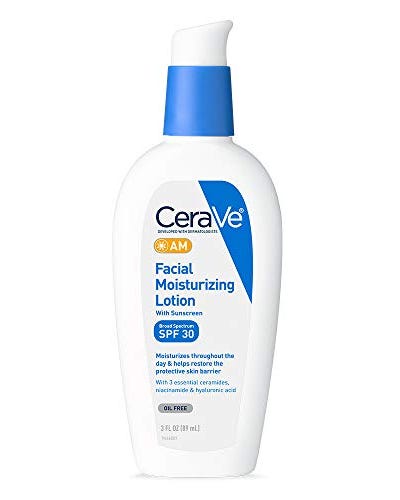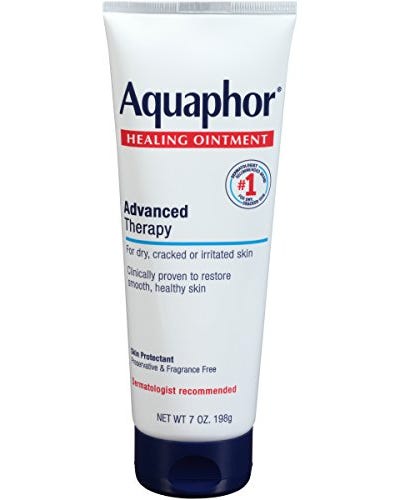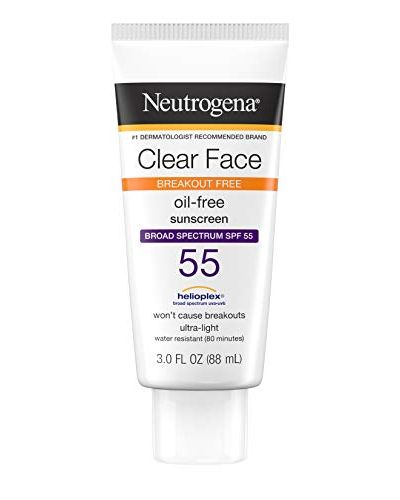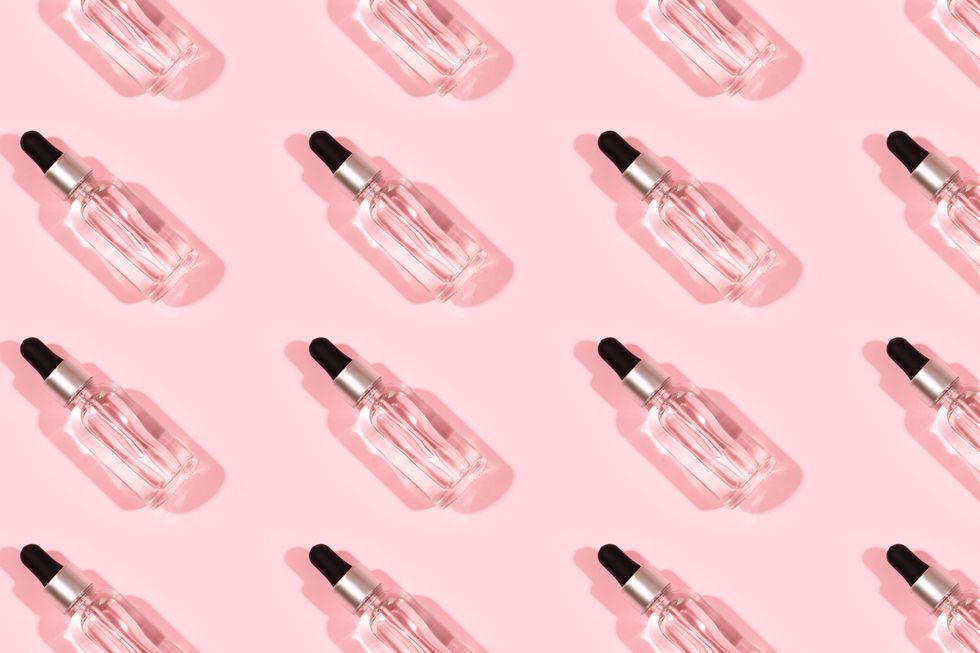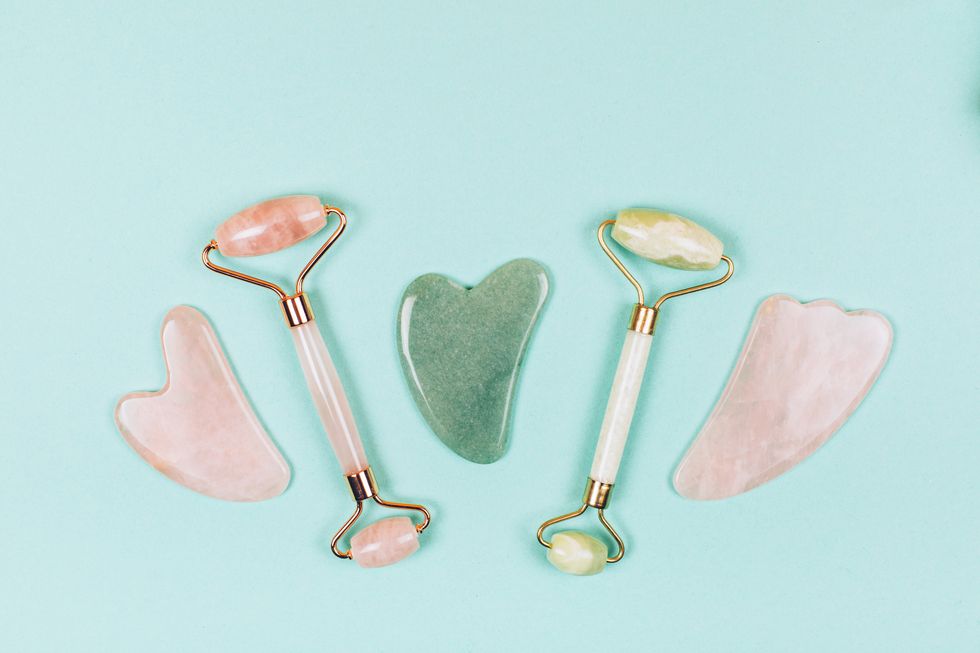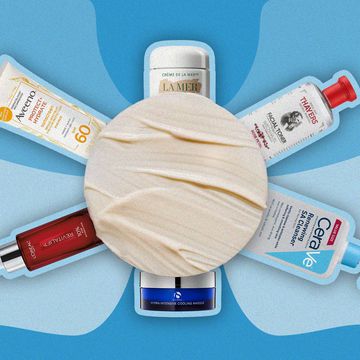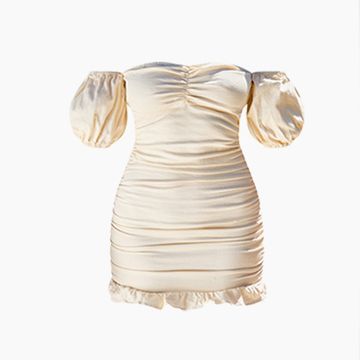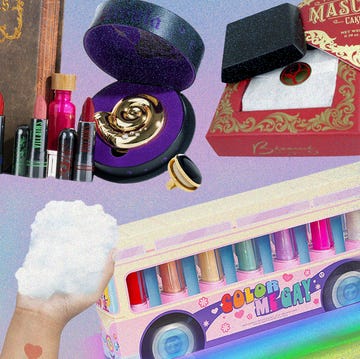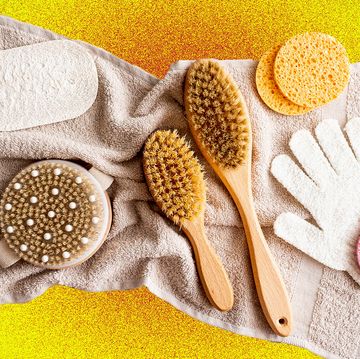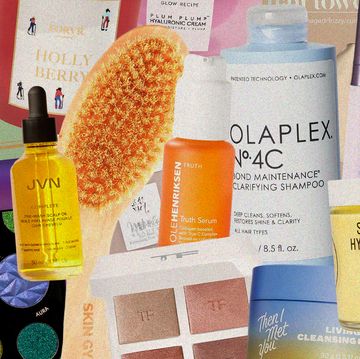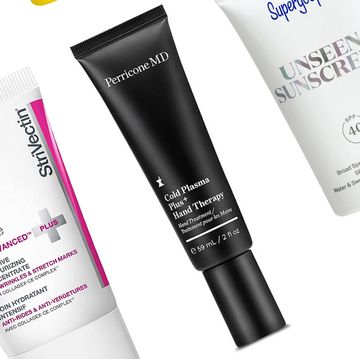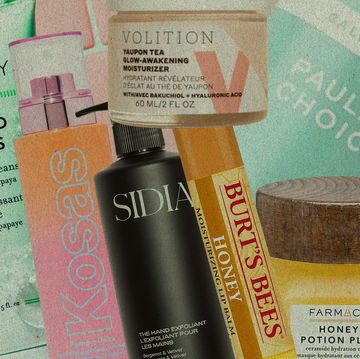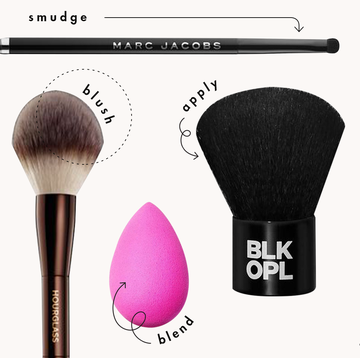Now that cloth masks and safer at home guidelines are a part of the everyday routine for a lot of Americans, we may have to address our skincare routines. Perhaps you find yourself frantically Googling solutions for maskne — acne that results from wearing a mask. You may even have breakouts from stress, which can also throw a wrench into your skincare ritual. It’s easy to just drop out of self-care and beauty regimes in general out of overwhelm and also because you’re likely not seeing many people in person. But it’s still wise to take care of your skin during the pandemic.
We turned to the experts, dermatologists Marisa Garshick and Brendan Camp and celebrity facialists Candace Marino and Ildi Pekar, and asked them how to adjust your skincare regime during COVID-19 so you can keep your glow going, even if it’s just for your Zoom calls for now.
“Masked” and Answered
For many people, the last couple of months marks the first time they’ve had to wear cloth masks or PPE for any extended period of time, and it has raised some issues about how to keep yourself and others safe while keeping your skin healthy and happy. As necessary as they are, wearing them for an extended period of time can lead to irritation, bruising, breakouts, and flare-ups of other dermatological conditions. There are, however, some steps you can take to prevent and treat these issues.
The first step in saving your skin is generally the choice of mask material. Unless you are required to wear an N95 mask (which are made from a non-woven material), dermatologists recommend you choose masks made from tightly woven cotton fabric, which is less likely cause friction or an allergic reaction. Even with that, skin can become irritated, to lessen that Dr. Garshick recommends gentle skincare that helps “support and protect the skin barrier” for people with sensitive or dry skin, she recommends “regular use of moisturizing creams or lotions such as Cerave AM or La Roche Posay Toleriane Double Repair.”
If your skin is oilier and prone to acne, she suggests using “products that are noncomedogenic or oil-free to prevent clogged pores.” For areas that become especially irritated, “such as the bridge of the nose, it can be helpful to apply a thicker ointment such as Aquaphor or a barrier cream, such as zinc oxide-containing Desitin or Triple Paste, which can not only help soothe the skin but also provide a barrier effect to minimize further trauma to the skin.”
Dr. Camp also emphasizes the importance of keeping your skin and your masks clean. “Use a gentle cleanser twice a day to remove excess oil, debris, and makeup, and follow up with a toner. Toners remove residual dirt and grime on the skin.” But he suggests you don’t overdo it, adding “if your skin is particularly dry you may not need to wash your face or use a toner twice a day.” He also recommends that wearers review the CDC guidelines for best practices on wearing and laundering reusable masks. It’s all an adjustment to be sure, but a necessary one and one that will hopefully keep you looking and feeling good during a difficult time.
Should we ditch the Sunscreen?
Going out less means less exposure to pollution, UVA/UVB rays, and other skin irritants, so we can slack off a bit, right? Sadly, no. The general consensus among skincare professionals is that you should maintain your usual regimen – including sunscreen. According to Dr. Garshick, “It is important to stick with your normal skincare routine even without going out as much. The basics of skincare including gentle cleansing, moisturizers, and sun protection are still important even without spending as much time outside.”
SPF remains as important as ever, but for different reasons, including increased screen time. As Dr. Garshick explains it, “continued use of sun protection is particularly important as we know UVA can pass through windows and more research is highlighting the effects of blue light from our screens on our skin, so you want to make sure you’re protected even without spending as much time outdoors.” As aesthetician Ildi Pekar points out, while it may be tempting to swing the other way and get really fussy with scrubbing, moisturizing, and treating every last inch of skin, you should probably avoid that, too.
“Avoid the overuse of your products; now less is better. In my experience, many of us have more time on our hand, and [we may] want to try everything, but I suggest you listen to your skin, use what’s necessary and let the skin breathe. I suggest you stay with your essential routine, so you can still work on improving any blemishes and maintain healthy skin.”
Dr. Camp agrees that less might even be more right now. According to him, “Maintaining a good skincare routine is not only good for your physical health, but also your mental health. Research suggests that keeping routines reduces stress levels, so don’t let your skincare slack.” Explaining that you might take stock of your collection and “edit your routine and simplify it. By limiting the number of steps or product you use you will be more likely to comply with the regimen and less likely to develop skin irritation from overly aggressive treatment.”
As ever, keep at it, drink lots of water, don’t pick at blemishes or imperfections and, if you do add a new step or two, be patient. Dr. Garshick advises everyone to be “consistent with your routine but don’t be scared to try new things. This time at home for many people may be a good time to try out a new product or ingredient as the skin may need time to adjust to a new ingredient and it can take some time for products to start to work.” In addition, many dermatologists are offering telemedicine appointments if any questions or concerns pop up.
Treat Yourself
Even with a good basic routine, there are still plenty of ways to up your skincare game and treat concerns like dryness and breakouts without being able to get to a doctor’s office or spa in person. Plus, as Dr. Camp warns “stress leads to wrinkles!”, so finding ways to unwind and relax these days is especially important with everything that’s going on and a weekly pampering, at-home treatment can enhance your usual steps and give you some needed time to unwind and recharge.
“Doing some at-home treatments is also a great idea,” says Marino. She recommends the Olga Lorencin At-Home Facials, because their multi-step processes are similar to what facialists use in their practice, “they include a peel and a mask to give yourself a professional-style treatment at home.” Additionally, if you really want to get basics, both dermatologists and skin care professionals recommend ditching the bathroom cabinet for the vegetable drawer in the fridge. Dr. Camp suggests “Avocado masks are popular because of the strong moisturizing power of avocado oil. Mixing avocado with honey, which is antibacterial, and lemon, which is an exfoliant, is a popular DIY mask.” Pekar also suggests trying ingredients like tomato, sour cream, and parsley. “Also, if you have some simple tools, you can keep up with your youthful glow and texture as well. Gua Sha massage stones and derma rollers are great for this purpose.”
The way we care for our skin is important, not only for cosmetic reasons but also because when look our best we feel good about ourselves, which can increase our well-being overall. As with everything, it’s important to strike a fine balance. Just remaining mindful of the above suggestions is a great place to start. You don’t have to do them all or do everything perfectly — a little love and care toward your skin goes a long way.
Ilise S. Carter is a New York City-based writer specializing in beauty and America history whose work has appeared in the New York Times, Allure, Wall Street Journal and other outlets. Find her on Twitter @TheLadyAye.
Get Shondaland directly in your inbox: SUBSCRIBE TODAY
